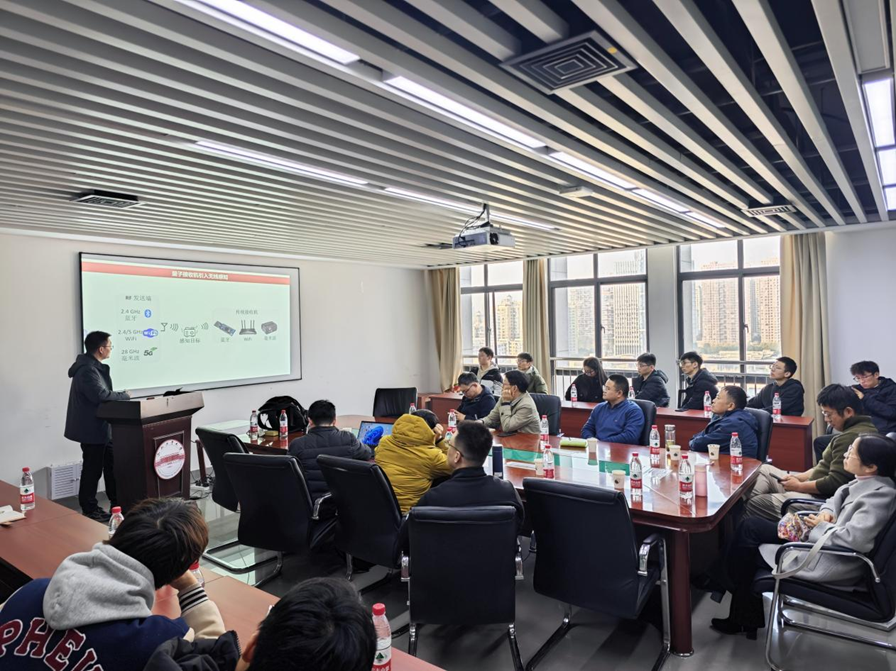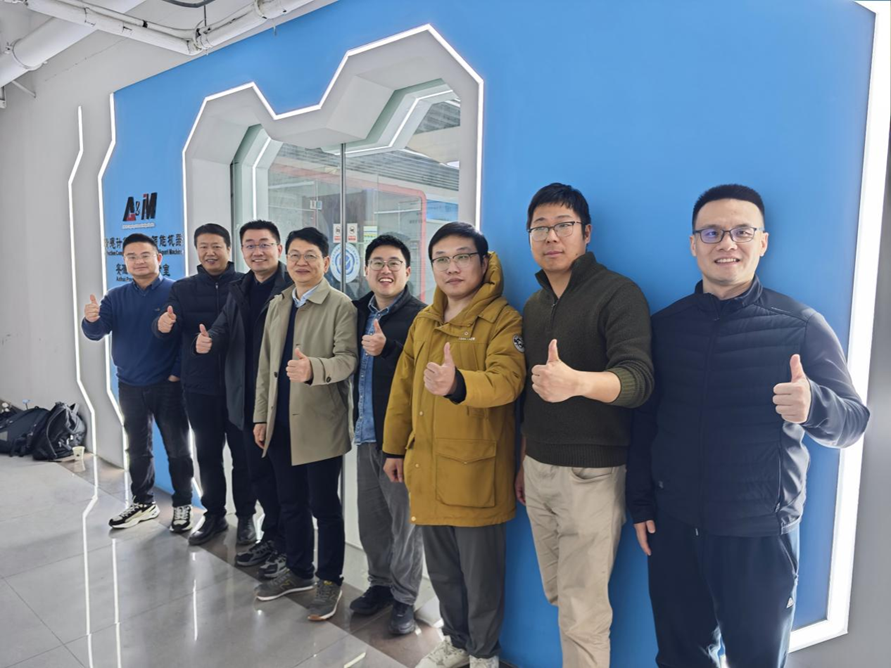On the afternoon of December 6, 2024, Professor Zhang Fusang from the Institute of Software, Chinese Academy of Sciences, was invited by the School of Computer Science and Information Engineering to deliver an academic lecture titled “Creating ‘Wireless’ Possibilities: New Opportunities in Ubiquitous Wireless Sensing.” The lecture, held in the 11th-floor conference room of the Feicui Science and Education Building, was hosted by Huang Jinyang, a young faculty member of the school. The event was attended by key leaders, including Wu Gongqing, the Vice Dean of the School of Computer Science and Information Engineering, Qi Meibin, the Chair of the Department of Information and Communication Engineering, along with faculty and students.
Professor Zhang provided an in-depth overview of the latest research achievements in the field of ubiquitous wireless sensing at the Institute of Software, Chinese Academy of Sciences. He focused on diverse signals for intelligent sensing based on ubiquitous signals, such as WiFi, UWB, millimeter-wave, and quantum sensing. He introduced the latest developments in various wireless sensing technologies and provided new insights into advancing sensing technology and overcoming the performance bottlenecks of intelligent sensing. Through vivid case demonstrations, Professor Zhang showcased the vast potential and broad application prospects of ubiquitous wireless sensing research in real-world scenarios.
Professor Zhang Fusang is a National Young Talents Scholar of the Chinese Academy of Sciences, a Beijing Science and Technology Star, and a recipient of several prestigious awards, including the ACM SIGMOBILE China Rising Star Award, the Wu Wenjun Artificial Intelligence Outstanding Youth Award, the Microsoft Star Scholar Award, and the AIoT Young Scientist Award. He has published over 60 academic papers in top international journals and conferences. His research has been recognized with Best Paper Nominations at top conferences such as MobiCom (Mobile Computing and Networking), UbiComp, MobiQuitous, and the CCF TPCI Best Paper Award. His work has also been covered by leading scientific media outlets, including Science News and New Scientist. His contributions have significantly advanced both academic and industrial fields.
This lecture not only provided a platform for in-depth academic exchange but also broadened the academic perspectives of our faculty and students, sparking their strong interest and enthusiasm for research in ubiquitous wireless sensing. We look forward to more such academic events in the future, which will further elevate the research capabilities of our school in this exciting field.


 TOP
TOP